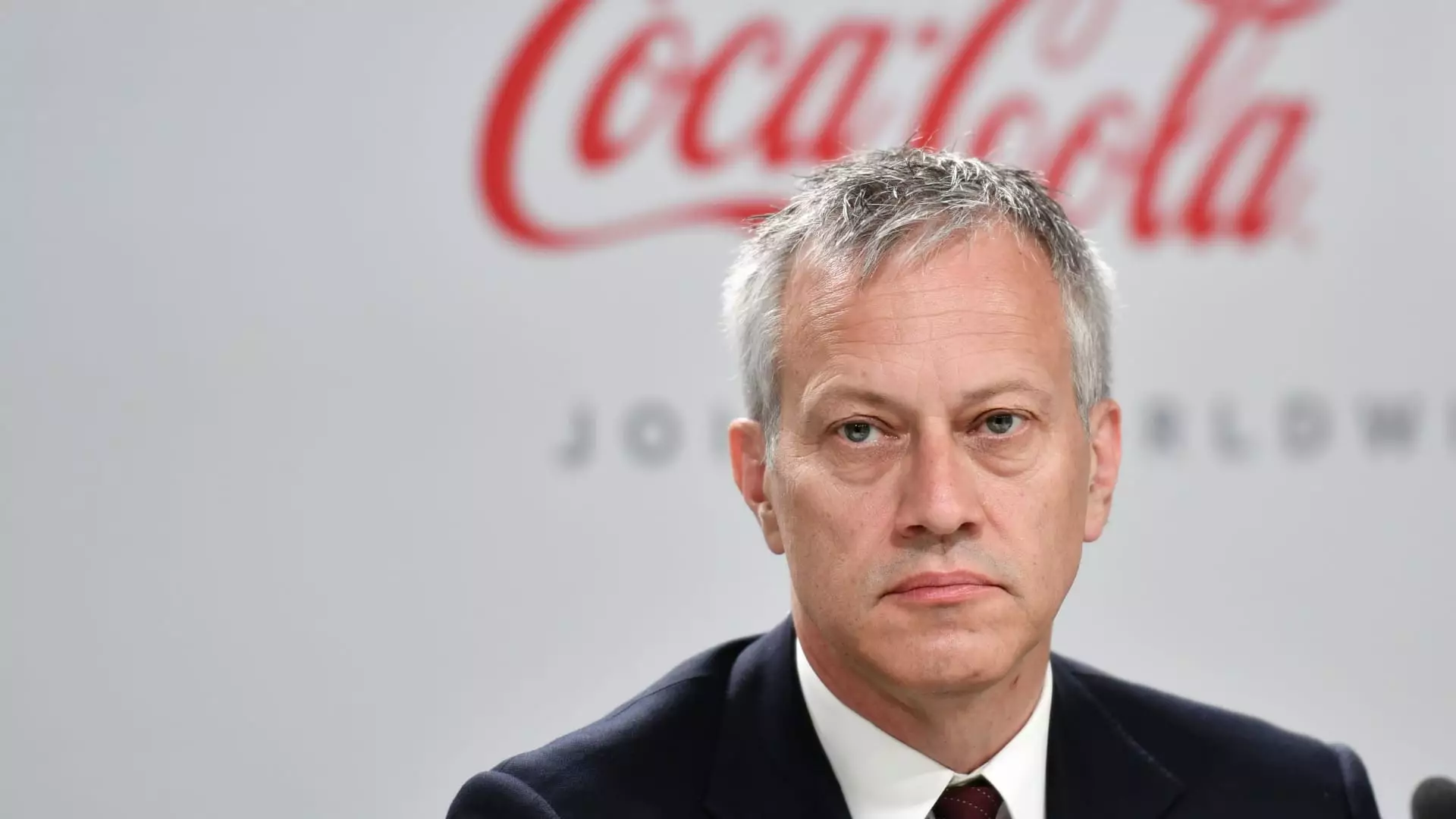The relationship between Coca-Cola and McDonald’s is not merely transactional; it is deeply rooted, symbiotic, and spans almost 70 years. However, recent health concerns linked to McDonald’s food safety have sparked a wave of scrutiny. During a recent earnings call, Coca-Cola CEO James Quincey addressed the concerns surrounding an E. coli outbreak tied to one of McDonald’s most popular menu items, the Quarter Pounder. Quincey projected confidence in the partnership’s resilience, asserting that the outbreak would not significantly impact Coca-Cola’s sales.
Coca-Cola and McDonald’s share a unique history characterized by mutual support and collaboration. As McDonald’s largest restaurant client, Coca-Cola has actively partnered with the fast-food giant to enhance its beverage offerings and marketing strategies. This partnership has solidified both companies’ positions in the marketplace, ensuring growth despite economic fluctuations. Quincey’s declaration of cooperation amidst the health scare highlights the significance of their alliance. By providing marketing funds for projects like the $5 value meal, Coca-Cola demonstrates a proactive approach to maintain sales momentum, reflecting both companies’ strategies to support one another during turbulent times.
The importance of this relationship cannot be understated, especially considering the backdrop of consumer behavior shifts and spending declines. Fast food chains like McDonald’s are struggling to attract customers, and the introduction of discounts reflects a strategic response to this challenge. Coca-Cola’s involvement in promoting value meals not only aids McDonald’s but also allows Coca-Cola to maintain its presence in consumer minds during slow economic periods.
The Centers for Disease Control and Prevention (CDC) recently announced that an E. coli outbreak has been linked to McDonald’s Quarter Pounders in ten states, with 49 confirmed cases, including a fatality. The CDC has identified potential causes tied to specific ingredients unique to the Quarter Pounder, namely fresh beef patties and slivered onions. Despite the seriousness of this public health issue, Quincey remains optimistic regarding its impact on Coca-Cola’s bottom line. Such a confident stance raises questions about the nature of consumer habits and the resilience of established brands in the face of crises.
A broader analysis of the situation must consider how health scares affect consumer perceptions. In fast food, a single health incident can ripple through the public consciousness, leading to hesitant purchasing decisions. This potentially poses a threat not only to McDonald’s sales but also to Coca-Cola’s bottom line, as their products are integral to McDonald’s offerings. It will be critical to monitor sales data in the coming weeks to fully understand the ramifications.
In light of this health scare, McDonald’s has taken swift action, temporarily removing Quarter Pounders from select markets and halting the distribution of problematic ingredients. Their proactive approach, coupled with assurances from leadership that other menu items are safe, aims to restore consumer confidence. On NBC’s “Today” show, Joe Erlinger, McDonald’s USA President, reiterated the company’s commitment to food safety by stating the removal of the Quarter Pounder was executed expediently.
Coca-Cola’s partnership plays a critical role here. By supporting McDonald’s in marketing the value meals during this crisis, Coca-Cola can leverage its brand strength to counteract potential negative perceptions and encourage continued patronage of McDonald’s restaurants. The emphasis on collaboration between these two companies is paramount, underlining the interconnected nature of their operations.
Despite the challenges posed by the outbreak, Coca-Cola managed to surpass third-quarter revenue and earnings expectations, largely attributed to effective pricing strategies. However, a decline in share price indicates market apprehension, reflecting broader consumer spending hesitancies. The coming weeks will be pivotal as both companies navigate this health scare and work to shore up consumer trust.
While the immediate implications of the E. coli outbreak present challenges, the historical partnership between Coca-Cola and McDonald’s offers a foundation for resilience. The proactive measures each company is deploying will be crucial in determining their long-term success in weathering this storm. Through strategic marketing collaborations and swift responses to health concerns, both companies have the potential to emerge from this crisis with renewed consumer confidence and stability in sales.

